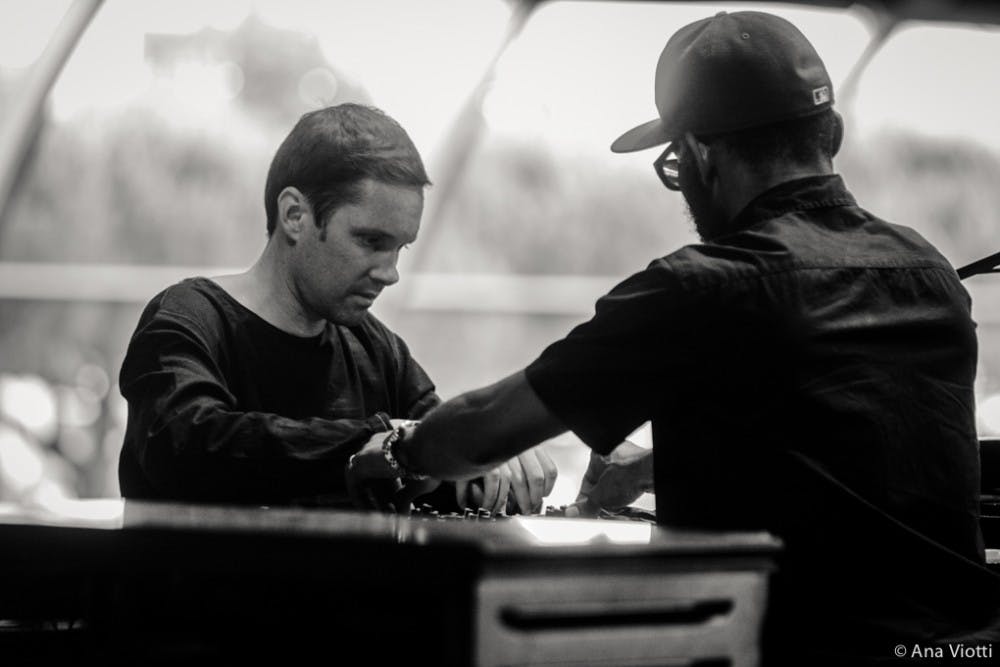If you’re a middle- or upper-middle-class progressive — especially if you’re white — there’s a good chance that you listen to NPR. Why that’s the case is irrelevant, just know that it’s a fact, like gravity or that the Academy Awards are racist.
Anyways, if you do listen to NPR, you may have encountered some of their excellent music journalism, which does its best to showcase a variety of interesting artists (if you’re from NPR and you’re reading this, my résumé stands ready).
It was while listening to NPR’s All Songs Considered podcast that I first heard of Rhye, the fluid musical project created and lead by Canadian musician Mike Milosh — also known by the mononym Milosh.
The project was originally a partnering between Milosh and Danish artist Robin Hannibal, although the latter left the group relatively quickly.
Their collaboration produced the 2013 album Woman, which was well received by critics and sent Milosh — along with supporting musicians — on a lengthy, almost never-ending run of touring.
Milosh told Uproxx that Rhye had done 476 concerts between the release of Woman and their second album Blood, which came out Feb. 2 of this year.
That’s a lot of shows, particularly since Milosh and his collaborators had only one album to their names, as well as the fact that Robin Hannibal did not do any touring with the group. So apparently people wanted a second album.
Rhye was a surprise to me; in his interview with NPR’s Bob Boilen, Milosh shared the song “Count to Five,” the fifth song on the album and one of its lead singles.
Rhye is ostensibly a sort of electronic synth-pop, although the sound could more accurately be described as graveyard seduction. Think Patrick Swayze in Ghost.
“Count to Five” is one of the more danceable tracks on Blood, with a tight disco-style backbeat overlaid with cascading rhythms and Milosh’s quaking voice. Similarly, “Feel Your Weight” mixes chirpy synths with a couple guitar chords seemingly inspired by Motown.
Yet the latter song, like much of the music on Blood, culminates in a bleak but romantic finale; the rhythm falls away and Milosh’s whispering voice overwhelms everything.
Much of this album — deft instrumentalism aside — is contingent on Milosh’s voice. Whether it’s particularly unique or interesting is irrelevant. The real value in Milosh’s singing is how it almost becomes an instrument in itself.
The lyrics are something of an abstraction, with the real focus being the pitch and delivery of each note. This is most evident on “Please,” in which the instrumentation is stripped nearly bare and Milosh’s voice is left to stand alone.
You can really make out only one word in every line, but it seems like that’s kind of the point. Anyways, it’s all so breathy and erotic that what’s being said is unimportant.
Instrumentally the album is incredibly well-crafted. Everything mixes so seamlessly that it feels as if one person is doing everything. This, however, is not the case, as Milosh has recruited an ensemble of talent to provide substance behind his voice.
The mix of instruments is impressive in itself; one can hear orchestral strings, the aforementioned funky guitars and drums — supported by tambourines and other essentials — and the ever-present synth.
However, the real genius lies in how each instrument imitates another: On “Phoenix,” the ninth track, a distorted guitar serves as a stand in for a horn; on “Waste,” a high-hat becomes a tambourine; on every song, Milosh’s voice becomes part of the arrangement.
Everything melts together, each note flowing smoothly as if it were some kind of romantic metaphor I don’t have the capacity to think of.
Blood is basically the sonic interpretation of light BDSM. Just look at some of the song titles: “Sinful,” “Blood Knows,” “Softly.” There’s literally a lyric in “Softly” which goes, “I want you to come... with me.”
It’s all very sexual in a diet Fifty Shades of Grey way. Someone’s going to get tied up, maybe blindfolded; there might even be some candle wax involved, but nobody’s really in danger. It’s all just some good, low-risk fun.
It might be nice if it were a bit more risky though. The album, while technically well-crafted and beautiful in its own way, isn’t very exciting.
Blood doesn’t bring out any strong feelings, something that this sort of music should be able to do. It’s good, but not great, which isn’t necessarily a bad thing but might discourage one from revisiting Blood often.
Put it this way, I listened to this album about four or five times in the process of writing this article, and while I did enjoy it each time, at no point in the rest of my day did I think, “Wow, I have to hear that song right now.” It’s impressive to be sure, but not mind-blowing.





